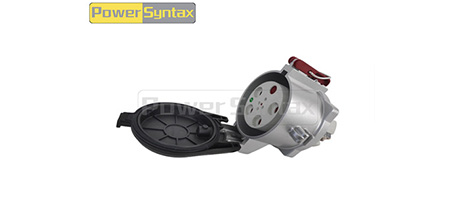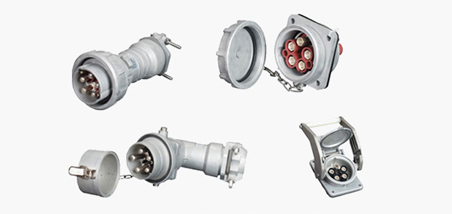In industrial workshops, data centers, and heavy-duty manufacturing facilities, high current plugs & sockets are the lifeline of high-power equipment operation. These components bear extreme electrical loads, and even a tiny safety oversight can lead to equipment burnout, electrical fires, or serious personnel injuries. However, many users unknowingly fall into common safety traps when using high current plugs & sockets. Below, we reveal 5 critical mistakes to avoid, helping you safeguard your workplace and equipment.

1. Mistake 1: Choosing the Wrong Specification for Load Requirements
Many users prioritize cost over compatibility, selecting high current plugs & sockets with insufficient current or voltage ratings to match their equipment. For example, using a 50A socket for a 60A high-power motor forces the component to operate beyond its load capacity.
This mistake causes overheating of the plug and socket contacts, accelerates wear of conductive parts, and may even lead to short circuits due to melted insulation. Always check the equipment’s maximum current demand and choose high current plugs & sockets that meet or exceed the specified ratings, ensuring a 10-15% safety margin.
2. Mistake 2: Ignoring Environmental Adaptability
High-power environments often involve harsh conditions—dust, humidity, oil stains, or extreme temperatures—but many users use standard high current plugs & sockets regardless of the environment. A socket not designed for damp areas, for instance, can develop internal corrosion when used in outdoor or wet workshops.
Corrosion or dust accumulation affects contact conductivity, increasing resistance and triggering overheating. Opt for environment-specific high current plugs & sockets: IP65-rated for dusty/wet areas, high-temperature resistant models for foundries, and explosion-proof designs for flammable gas environments.
3. Mistake 3: Improper Installation and Loose Connections
Hasty installation is a common safety hazard. Some installers skip proper wiring steps or tighten connectors inadequately when fitting high current plugs & sockets. Loose connections create gaps between contacts, leading to arcing (sparks) during operation.
Arcing can ignite surrounding flammable materials and damage the plug/socket permanently. Ensure installation is performed by certified electricians, who will follow wiring standards, tighten connectors to specified torque, and conduct post-installation contact resistance tests.
4. Mistake 4: Neglecting Regular Inspection and Maintenance
High current plugs & sockets are prone to wear due to frequent plugging/unplugging and high-load operation, but many users only address issues when failures occur. Worn contacts, cracked insulation, or loose pins are often overlooked during daily use.
These damaged parts reduce safety performance and increase accident risks. Establish a monthly inspection routine: check for overheating marks, loose components, or signs of wear on high current plugs & sockets. Replace damaged parts immediately and clean contacts regularly to remove dust and oxidation.
5. Mistake 5: Mixing Low-Quality and Counterfeit Components
To cut costs, some buyers opt for cheap, uncertified high current plugs & sockets. These counterfeit products use inferior conductive materials (e.g., low-grade copper) and lack proper safety certifications (such as CE, UL, or IEC).
Inferior components have poor heat dissipation and insulation performance, easily leading to short circuits or electrical leakage. Purchase high current plugs & sockets from reputable suppliers with clear certification documents. Prioritize products with durable 外壳 (shells), high-quality contacts, and built-in overcurrent/overheating protection.
Safeguard High-Power Environments with Proper Practices
High current plugs & sockets are critical for high-power equipment safety, and avoiding these 5 mistakes is the first step toward risk prevention. By choosing suitable specifications, adapting to environmental conditions, ensuring proper installation, conducting regular maintenance, and using certified products, you can maximize the safety and service life of your high current plug & socket systems.
If you’re seeking reliable high current plugs & sockets or need professional safety advice for your high-power environment, our team is here to help. We offer a full range of certified, industrial-grade high current plugs & sockets, tailored to diverse harsh environments and load requirements. Contact us today to learn more about our safety-compliant solutions and protect your workplace from electrical hazards.























